For refugees in Calais, police brutality is a daily occurrence
A new report released by four Calais-based organisations highlights the increasing police violence and refugee camp evictions in the French port city. Jack Dutton reports
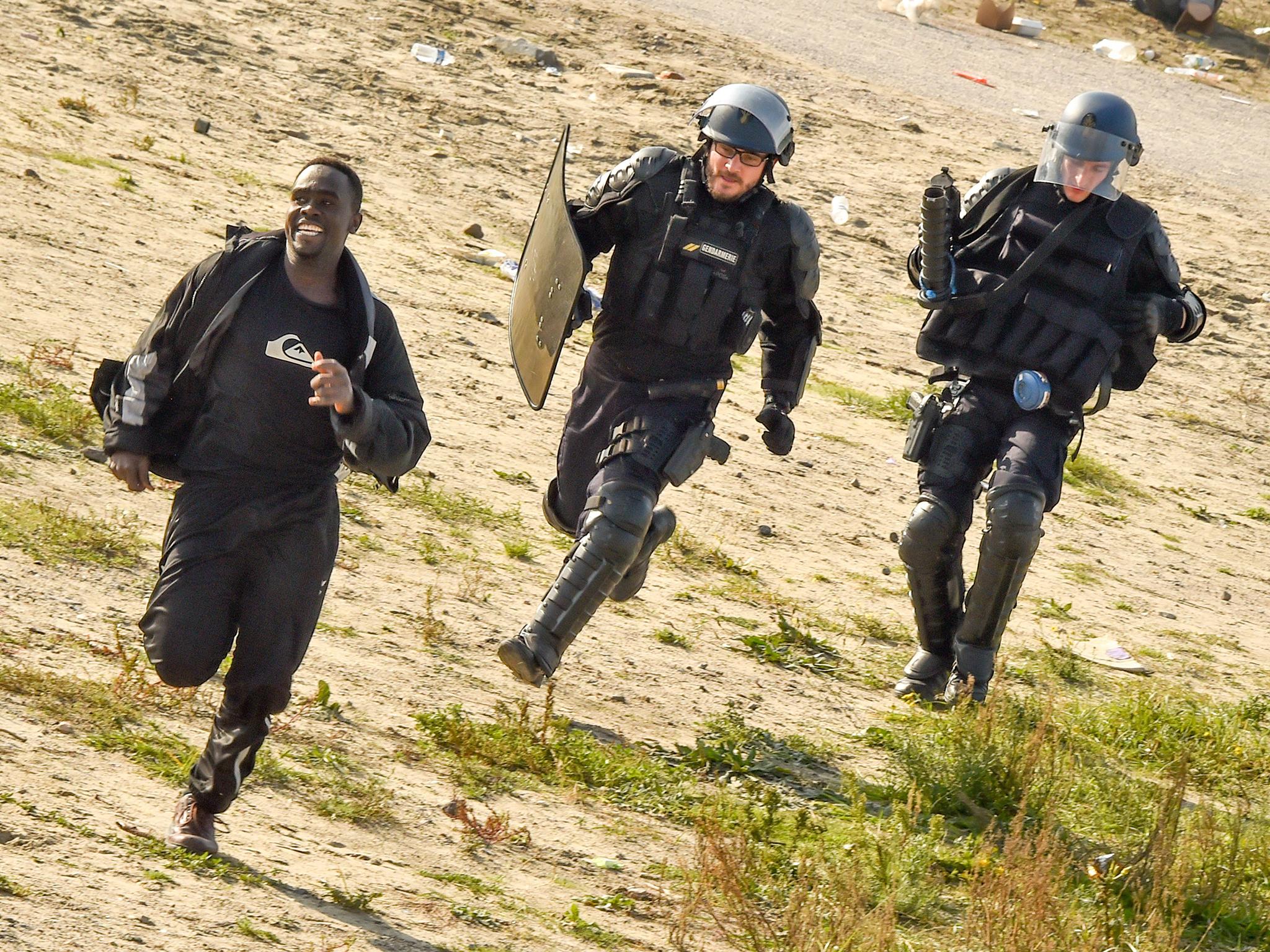
One cold evening in October last year, 15-year-old Iskinder* and two of his friends woke up to the sound of shouting and the hissing of spray cans. They were in a cold, unfamiliar place, thousands of miles from home, sleeping under a bridge by a main road. The police, who violently woke them, sprayed chemical agent on them and took away their sleeping bags. The boys were arrested, with no explanation given.
The chemical agent can cause allergic reactions and lesions if it gets on your skin. The three boys, all under 18 years of age, were handcuffed and struck on the top of their legs repeatedly with batons, their valuables smashing in their pockets.
In Calais, in the north of France, this is far from an isolated case. “Anybody you talk to here will have at least one account of being physically assaulted by the police,” says Charlotte Head from the Human Right Observers, an organisation established in October 2017 to investigate police violence towards refugees in the area.
Iskinder is one of the 1,500 refugees living around the French port city. Although the infamous Jungle camp closed just over two years ago, there are still many displaced people living in the area. Refugees from countries including Eritrea, Sudan, Ethiopia and Afghanistan are living in different pockets of northern France, often without adequate shelter, food, water and sanitation.
The week before Human Rights Day on 10 December, L’Auberge des Migrants, Refugee Info Bus, Legal Shelter and Utopia 56, four associations that work closely with refugees in northern France, released a report on police violence towards refugees in the Calais between 1 November 2017 and 1 November 2018. During that period there were 972 incidents reported relating to disproportionate physical violence, the use of teargas, destruction of personal property and other rights abuses by French police.
“Over the past month or so, the number of really serious, severe acts of police violence we’ve had reported to us has really increased,” says Head. “We’re talking 20-year-olds beaten up so badly that they’ve lost consciousness and people being teargassed in the mouth. Really, really bad stuff.”
The violence can be physical or psychological. It can include evictions, intimidation, confiscation and damage of personal items and the use of chemical agents. Many incidents would have not been reported because the refugees in the area have become so normalised to the violence that they don’t think it’s worth reporting on, says Head.
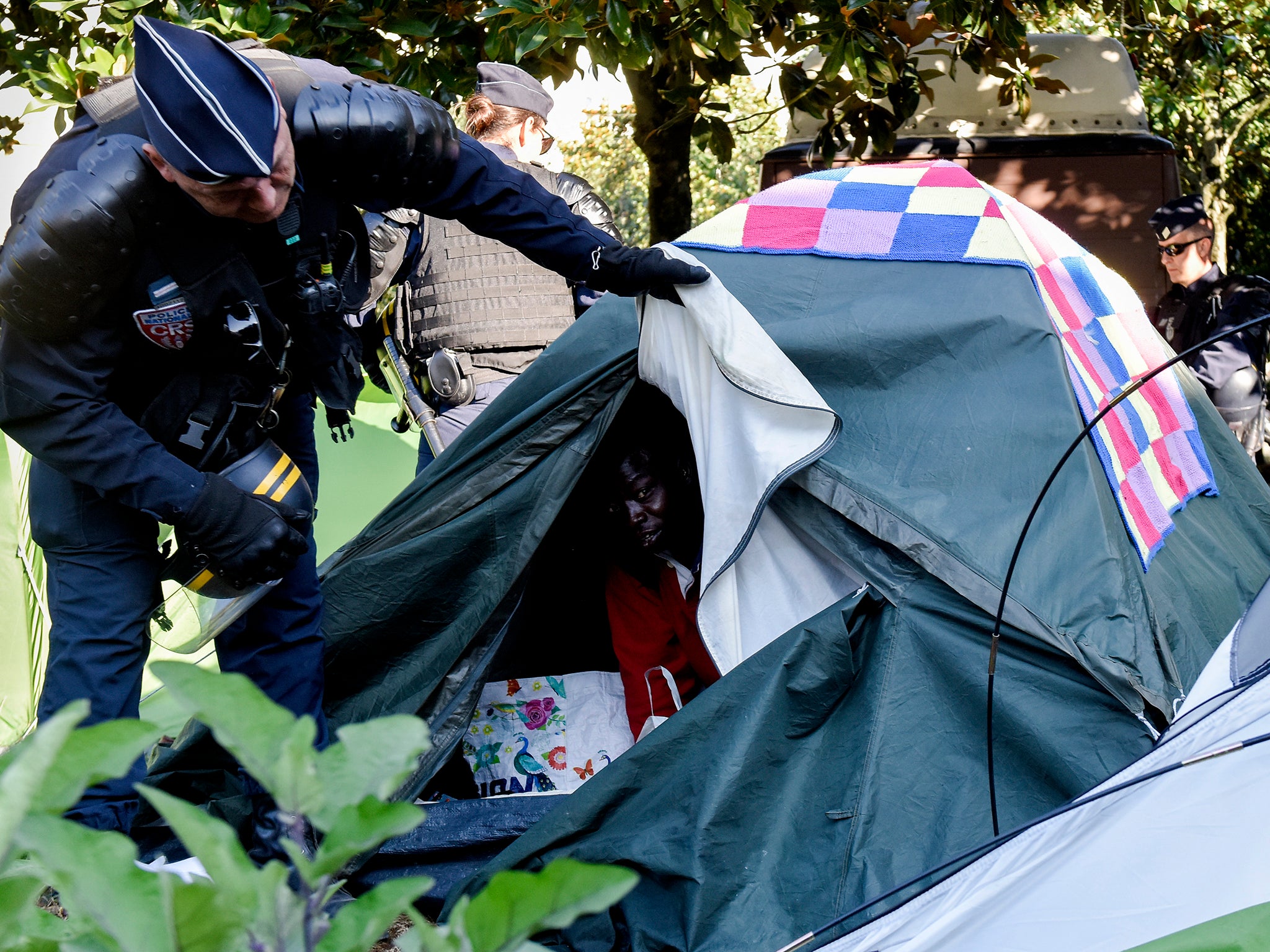
After the closure of the Jungle camp in October 2016, many refugees moved to Grande-Synthe, a poor suburb of Dunkirk. In September 2018, there was a mass eviction of the Grand-Synthe camp, where over 400 people, including 60 families and nearly 100 children, were taken onto buses destined for accommodation, according to Help Refugees. Two buses returned the later that day, as the accommodation centres were full, leaving people on the streets and in the forests surrounding the area.
There are no asylum centres in Calais, so often refugees have to go to other cities, such as Lille, Lyon or Paris to try and claim asylum. Others try to get to the UK, often by hiding underneath lorries crossing the channel. Many die doing this, but it often isn’t reported on. As recently as 18 November, a refugee was found dead under a bus at the Eurotunnel terminal in Folkstone in UK, according to the Calais Migrant Solidarity project.
Head and her team monitor refugee evictions around Calais every day. Police evictions in Calais have been increasing: in October there were 78 police evictions recorded, more than seven times higher than the 11 reported in July, according to Human Rights Observers.
For years there has been a significant police presence in Calais, especially between the end of 2015 to October 2016, when the Jungle existed. In January 2018, approximately 1,200 police and gendarme officers were on the ground in the area.
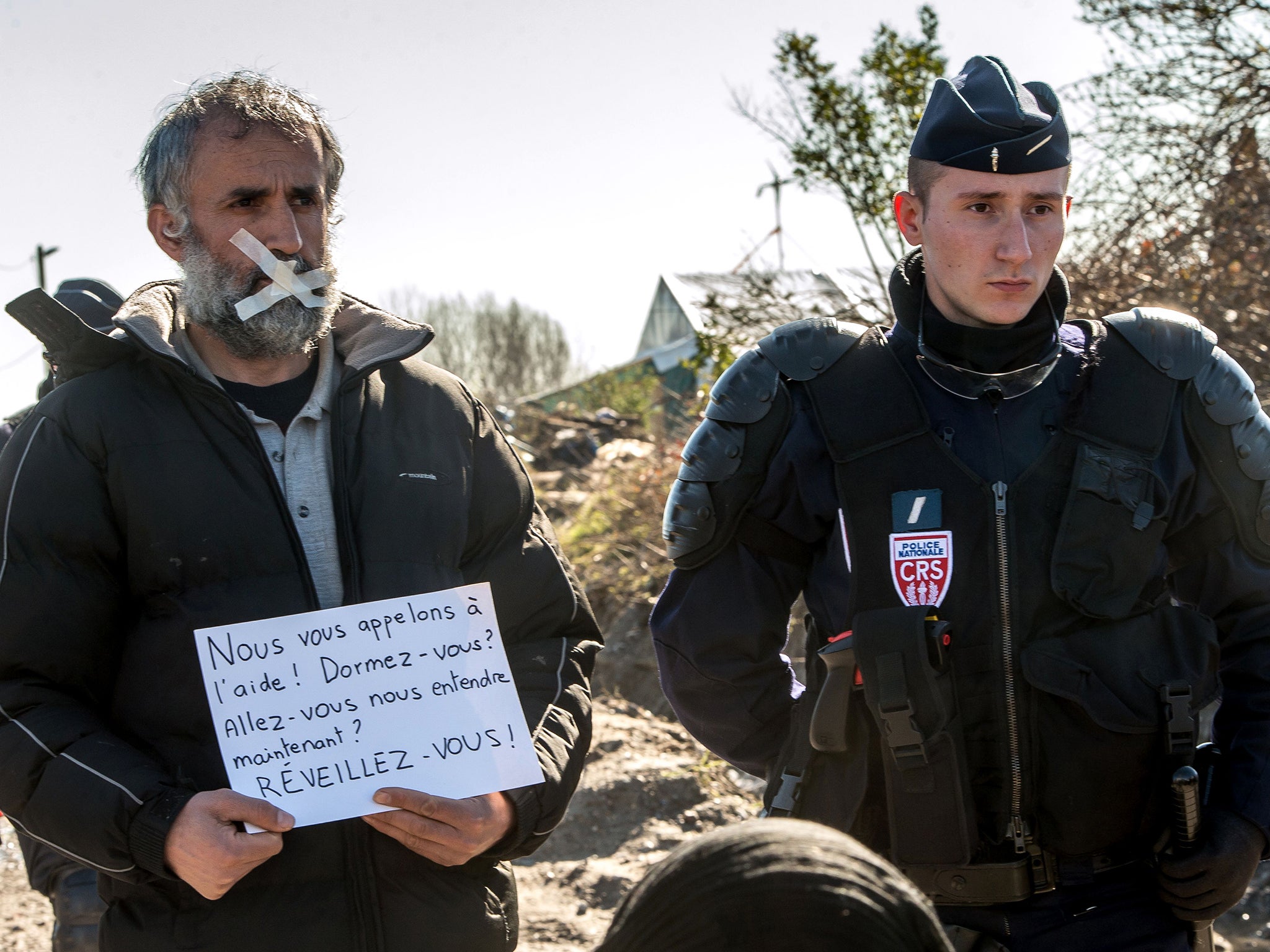
First Aid Support Team, a team providing first aid treatment for displaced people in Calais, said in August that there had been a serious increase of sleep deprivation in refugees, due to the number of evictions increasing in several camps. Sleep deprivation is positively linked to suicide, depression and unhappiness. When asked, refugees reported sleeping as little as four hours a night on average.
“The police come in the night-time,” says Fahad, a 22-year-old refugee from Pakistan, who was staying in woods south of Rue des Oyats. “Maybe 2 o’clock [in the morning] they come and we have three people in our tent. They rip the tent and spray inside. That time we didn’t sleep all the night because our whole body was feeling crushed. They cut the tent with blades.”
I saw through the smoke a boy being carried by his friends, covered in blood. He had been hit in the eye and they had no no way of getting him to hospital… His friends were crying; it was a group of minors and the boy himself was 16
The police violence and evictions in northern France has no obvious legal justification. During the year, 244 acts of police violence were reported, in and around Calais. The report logged 68 identity checks during that time and 160 refugee arrests. Those taken into custody, which included minors, were rarely told why. Legal Shelter, a French non-profit organisation established in 2016, was formed to address lack of objective legal information provided for the migrants living in the Calais Jungle. However, since the Jungle’s dismantling, the non-profit has still been active in Calais, claiming to be “the only objective legal organisation in the city”.
“Legal framework has never been given, neither to the volunteers present on the eviction grounds, nor to the migrant population having to move everyday,” says a representative for Legal Shelter. “The only explanations given are a variation of ‘police operation’ and a request to address a claim for information to the relevant authorities.”
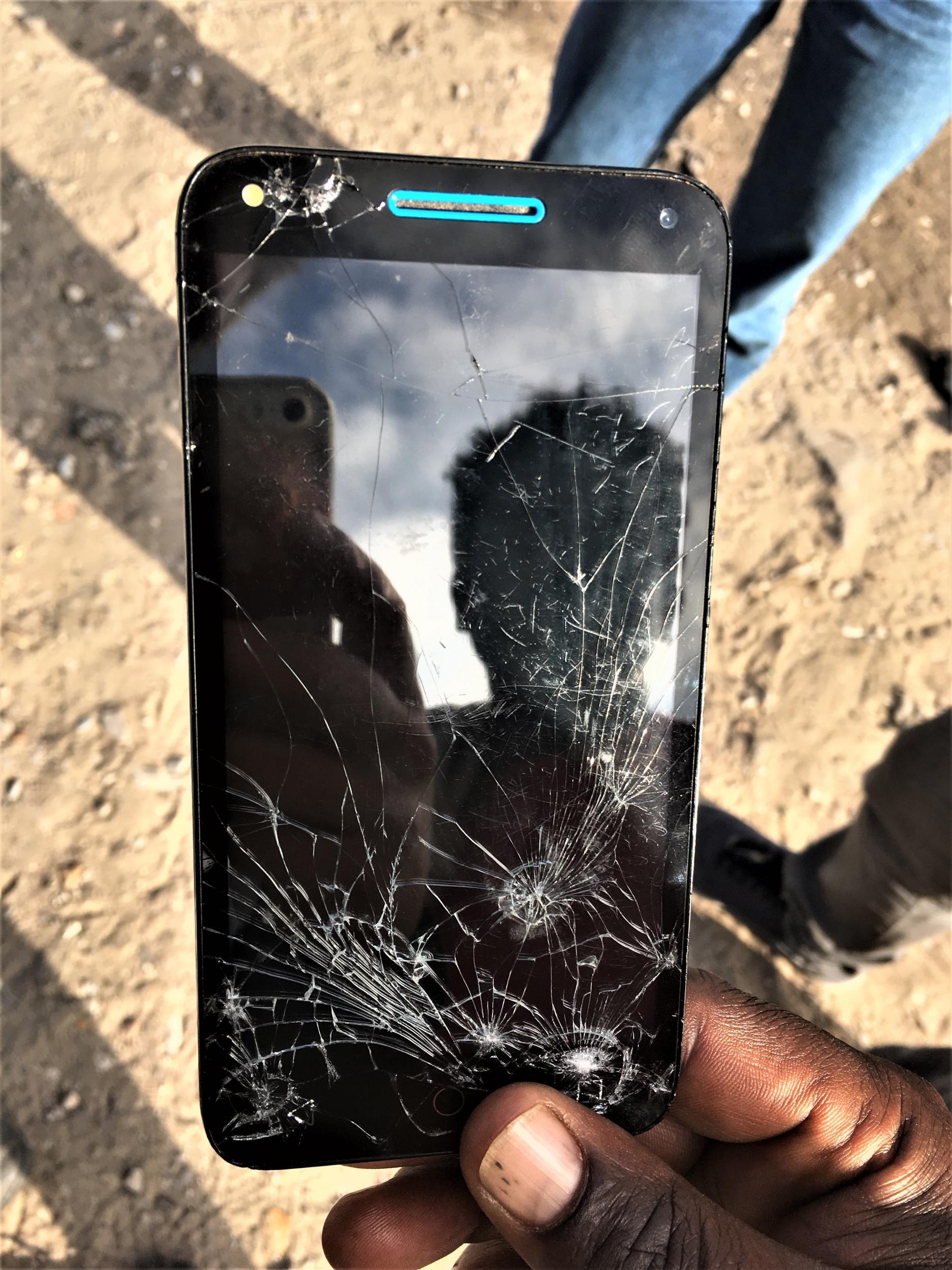
Letters have been sent to Le Procureur de la République – the attorney general – from the aid organisations, asking for the legal basis for the evictions. These letters have been left unanswered, even after frequent requests have been made. Le Procureur de la République did not respond to a request for comment when contacted by The Independent for this article.
Of the 244 violent incidents logged over the year, 153 involved the use of chemical agent. In one particularly shocking case in January, a 16-year-old boy from Eritrea lost his eye, sense of smell and hearing in one ear after the Compagnies Républicaines de Sécurité (CRS) – the general reserve of French national police known for crowd and riot control – fired teargas into a crowd of refugees to disperse them as officers cleared out the sleeping areas.
In a testimony, the boy said the rubber bullet was fired 10-15 metres from him by a police officer aiming for his face. On 4 June, the Inspection Générale de la Police Nationale announced that they would open an investigation into the incident, which has yet to be concluded.
An anonymous British aid worker who witnessed the incident says: “The CRS fired teargas from guns and filled the sky with smoke… I saw through the smoke a boy being carried by his friends, covered in blood. He had been hit in the eye and they had no no way of getting him to hospital… His friends were crying; it was a group of minors and the boy himself was 16.”

Head says that the police don’t often make the distinction between whether a refugee is a minor or not. She has received frequent reports of minors being beaten up by the police.
James Aldred, project manager at Refugee Youth Service covering Calais, says that there are approximately 200 refugee minors in the area, many of them unaccompanied with no family present.
“The big issue here is that police violence has been normalised,” he says. “It is so worrying that anyone, at any age, feels that police violence is the norm and that it is what the state represents.”
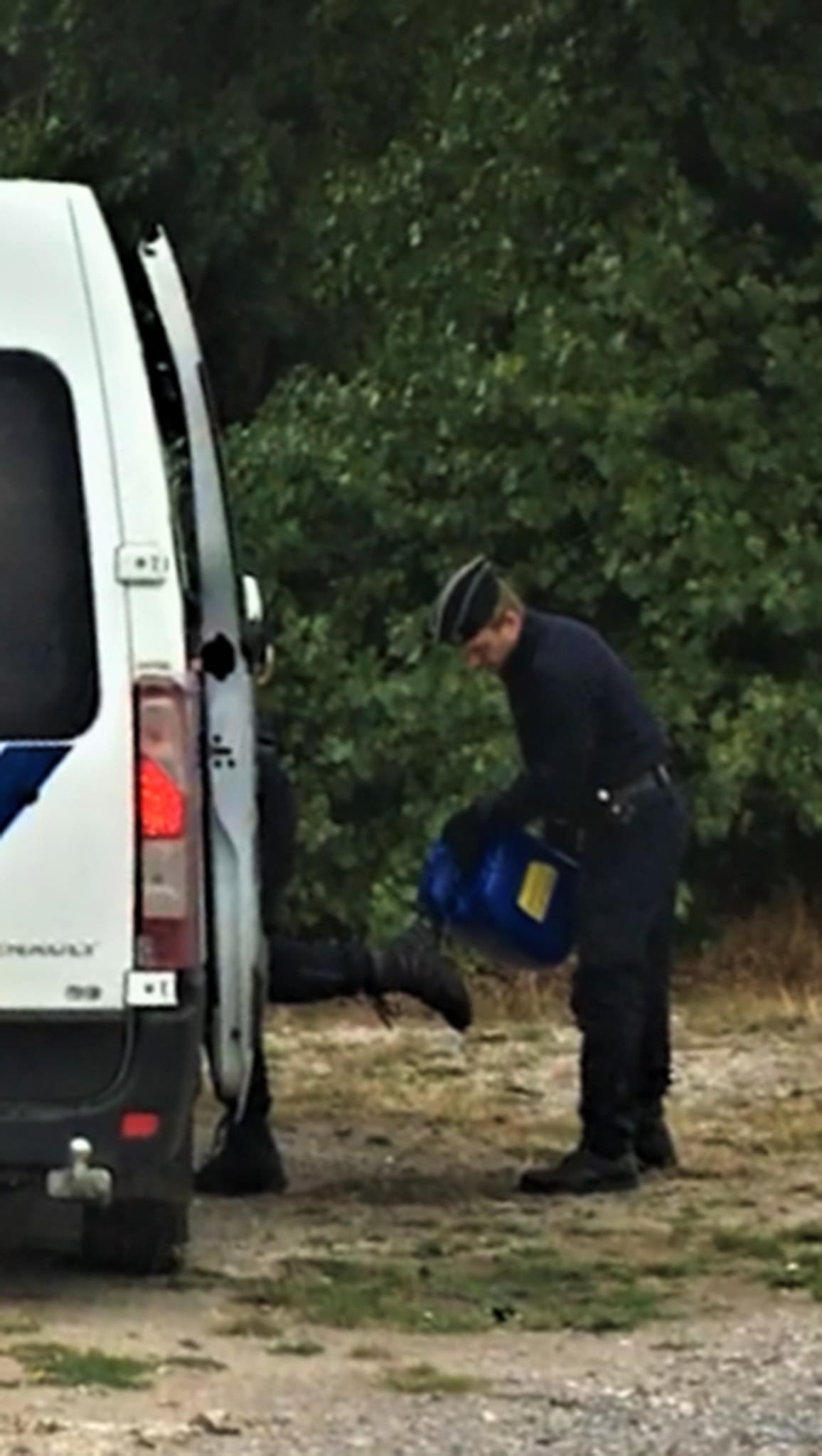
There are a number of minors staying near the old Jungle site and others that are nearer the main highways in Calais. “The implications for mental health and emotional instability are huge if you’re constantly living in this high stress environment. Both the environmental factors of ongoing traffic but also with the heightened awareness that police evictions are frequent and police violence can sometimes be evident as well.”
Securing child protection services and accommodation for minors in northern France can be challenging. These services are sought after and accommodation for refugees in the Calais region is often full.
“This initially seems like a French problem, but actually it relates to the number of spaces available in the local counsels and authorities in the UK,” says Aldred. “It’s something we’d really like to speak to the home secretary about, to try move on as soon as possible.”
Under the Dubs Amendment, which was passed in May 2016, the UK government was required to act “as soon as possible” to relocate and provide support to unaccompanied refugee children. The original figure proposed was 3,000 children to be taken in, but the figures dropped to 350 children when the government announced details in February 2017. The number was later increased to 480, still less than a sixth of the original figure.
The news got worse last week when the UK government said that it would not be taking in any more children from the Calais region under Dubs. This decision contrasts with what prime minister Theresa May said in January this year. May said that the UK would take more child refugees from Calais and spend £44.5m on additional security at the French port. Maddy Allen, a field manager at Help Refugees, says the Home Office is processing 35 children and there are now just under 200 spaces to be filled of the 480. If the spaces run out, the children will likely come from elsewhere in France, Italy and Greece.
There is not one simple, straightforward answer to why refugees in Calais are looking to come to the UK. A refugee could have been deported from the UK, might speak good English or might have family there, for example. Many are looking for a safe environment, after travelling through a number of countries where they have been dehumanised and mistreated.
As the police violence is rarely justified, it is hard to know the exact motivations behind the aggression shown by the police. “It’s very clear from a state level that they do not want there to be another refugee camp here in northern France and therefore the tactics employed by the police and the state are to an extent like the hostile environment that we see in the UK and across Europe towards migrants,” says Allen.
Préfet du Pas-De-Calais, the prefecture of Calais that helps govern the police forces in the area, did not respond to several requests for comment for this article.
“The UK government could be doing more in order to engage appropriately with this issue, instead of continuing to throw money at securitisation tactics, which so far have not worked,” says Adrian Abbott, spokesperson for Refugee Info Bus. “We’ve spent millions on it and it hasn’t actually increased border security. As we can see, more and more people have continued to get across, but at the same time we’ve seen an increase in police violence.”
Campaigners are calling for French authorities to adopt a non-violent default approach, and for governments across Europe to work harder to protect displaced people seeking refuge. In the UK, more could be done to raise awareness of the issue, hold the government to account and make claiming asylum a less daunting experience.
Article 25 of the United Nations Universal Declaration of Human Rights states that all people have the right to a standard of living adequate for the health and wellbeing of themselves and their family. They should have access to food, clothing, housing and medical care. Human Rights Day should serve as a reminder that we should act by drawing attention to these atrocities, calling for policy change and holding European governments and the police to account. It’s the least we can do.
*Refugee names have been anonymised
To advocate for refugees’ human rights and to call for an end to police brutality in France, please contact the Interior Minister of France to apply political pressure on the French government to inquire into this behaviour. A French template to send is available here (with an English translation available)
Join our commenting forum
Join thought-provoking conversations, follow other Independent readers and see their replies
Comments